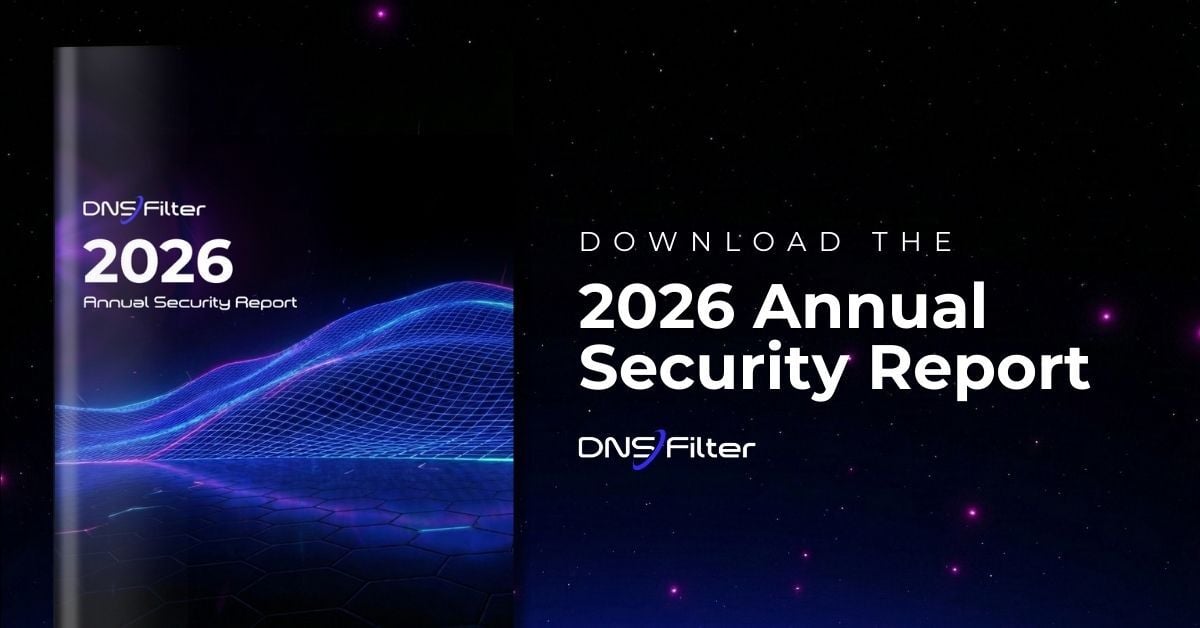Support Builds For The New European Resolver Policy
by DNSFilter Team on May 13, 2021 12:00:00 AM
A number of leading organisations have confirmed their support for the recently announced European Resolver Policy.
The policy, formulated by experts from across the technology and telecoms sectors, was launched to protect personal data. It has been designed to ensure that companies have clear privacy and transparency policies that are easily accessible, setting out how any personal data is used and whether it is exploited commercially.
A number of organisations have confirmed their endorsement of the policy, with some also adopting it for use in the services that they provide. The first tranche of organisations to announce their support for the policy include, in alphabetical order, the following:
- AdGuard
- DNSFilter
- Farsight Security
- The Internet Watch Foundation
- Open-Xchange
- Quad9
- Whalebone
- 419 Consulting
Further organisations are expected to confirm their support for the initiative in due course.
Susie Hargreaves OBE, Chief Executive of the IWF, said: “We have long campaigned about how the DNS over HTTPs standard could have a negative impact on victims of child sexual abuse. We believe that this resolver policy is a further step in the right direction for ensuring that there are appropriate safeguards in place to protect victims of child sexual abuse from having their imagery being freely accessible online.”
Internet pioneer and DNS thought leader Dr. Paul Vixie, CEO of Farsight Security, commented: “Those organisations that adopt the European Resolver Policy are demonstrating their commitment to the provision of services that respect the privacy, security and choices of their users. We believe the transparency provided will allow people to make informed decisions about the Internet services that they use.”
Susie Hargreaves added “We know how profoundly images or videos of child sexual abuse can impact on people, be it those who stumble across them by mistake on the Internet, or the victims themselves, who are re-victimised over and over again whenever this content is shared. We welcome this initiative and encourage other organisations to adopt the policy in order to provide reassurance and greater transparency to the users of their services.”
The Domain Name Service (DNS) is a critical but little-known part of the Internet infrastructure outside of the technical community. It is used to translate website names into the associated Internet Protocol (IP) addresses that allow computers to locate the right content on the internet.
Many tasks undertaken by computers make use of the DNS, potentially allowing the companies that operate the system to track users activities on the Internet without their knowledge. The new European Resolver Policy lays out clear standards for the operators of such systems, setting expectations regarding the collection, use and retention of personal data. It also encourages companies to protect users from malicious content and to allow users to be able to opt in or out of tools such as parental controls that limit access to certain data.
The policy’s lead author, Andrew Campling, director of 419 Consulting, said: “Having worked with a wide range of organisations across Europe and North America to develop the policy, I’m gratified to see organisations confirm their commitment to put it into practice.”
“We are committed to protecting user privacy and security and firmly believe that the industry needs to be more transparent in the way that it operates” commented Andrey Meshkov, CTO of AdGuard. “We are delighted to be one of the first organisations to update our transparency and privacy policies in line with the European Resolver Policy and urge others to follow our lead.”
“We protect Internet users from malicious attacks without the need for them to download anything” said Richard Malovič, CEO of Whalebone, “The European DNS Resolver Policy will provide users with reassurance that their privacy is being respected and their personal data isn’t being abused.”
A key distinction of the new policy is that it makes direct reference to the European Union’s General Data Protection Regulation (GDPR) as well as to national legislation. The policy is designed to apply to both standard and encrypted DNS, including the recently introduced DNS-over-HTTPS (“DoH”) protocol.
Vittorio Bertola, Head of Policy and Innovation at Open-Xchange, said: “We were concerned about the lack of awareness amongst most people of the Internet’s Domain Name System and the amount of personal information that can be gathered by its operators. By having clear privacy and transparency policies, we hope that users of the Internet will be much better informed about the way that their data is gathered and used.”
Ken Carnesi, DNSFilter’s CEO & Co-Founder, commented: “We’re dedicated to making the Internet safer and workplaces more productive. We endorsed the European Resolver Policy as it is a perfect fit with our approach and provides users with a clear indication of those companies working to enhance their security and privacy.”
John Todd, Executive Director of Quad9, said: “Quad9’s recent relocation to Switzerland is evidence of our dedication to the strict enforcement of privacy laws as applied to technology services. With that dedication in mind, we welcome this initiative are pleased to have assisted in the formulation of this DNS policy document and hope that it advances the causes of privacy and transparency not just for Europe, but also provides a standard for adoption worldwide.”
Categories
 DNSFilter’s Annual Security Report Highlights 30% Increase in Threats
DNSFilter’s Annual Security Report Highlights 30% Increase in Threats
Users are encountering as many as 66 threats daily—and new domains are a top culprit
 DNSFilter Sets New Benchmark for CSAM Protection with 2025 Year-End Blocking Results
DNSFilter Sets New Benchmark for CSAM Protection with 2025 Year-End Blocking Results
Major year-over-year increase in CSAM detection and prevention highlights expanded safety innovation in the wake of explicit GenAI content
 DNSFilter Strengthens Leadership Ahead of 2026 with New Chief Revenue Officer Rich Scott
DNSFilter Strengthens Leadership Ahead of 2026 with New Chief Revenue Officer Rich Scott
WASHINGTON, D.C. – Dec. 2, 2025 – DNSFilter, a global leader in protective DNS and content filtering, announced today that Rich Scott has joined as Chief Revenue Officer (CRO.) Scott brings more than 19 years of sales and executive leadership experience, including multiple prior CRO roles, and a track record of driving high-impact revenue strategies across cybersecurity organizations.Scott most recently served as Chief Revenue Officer at Critical...


